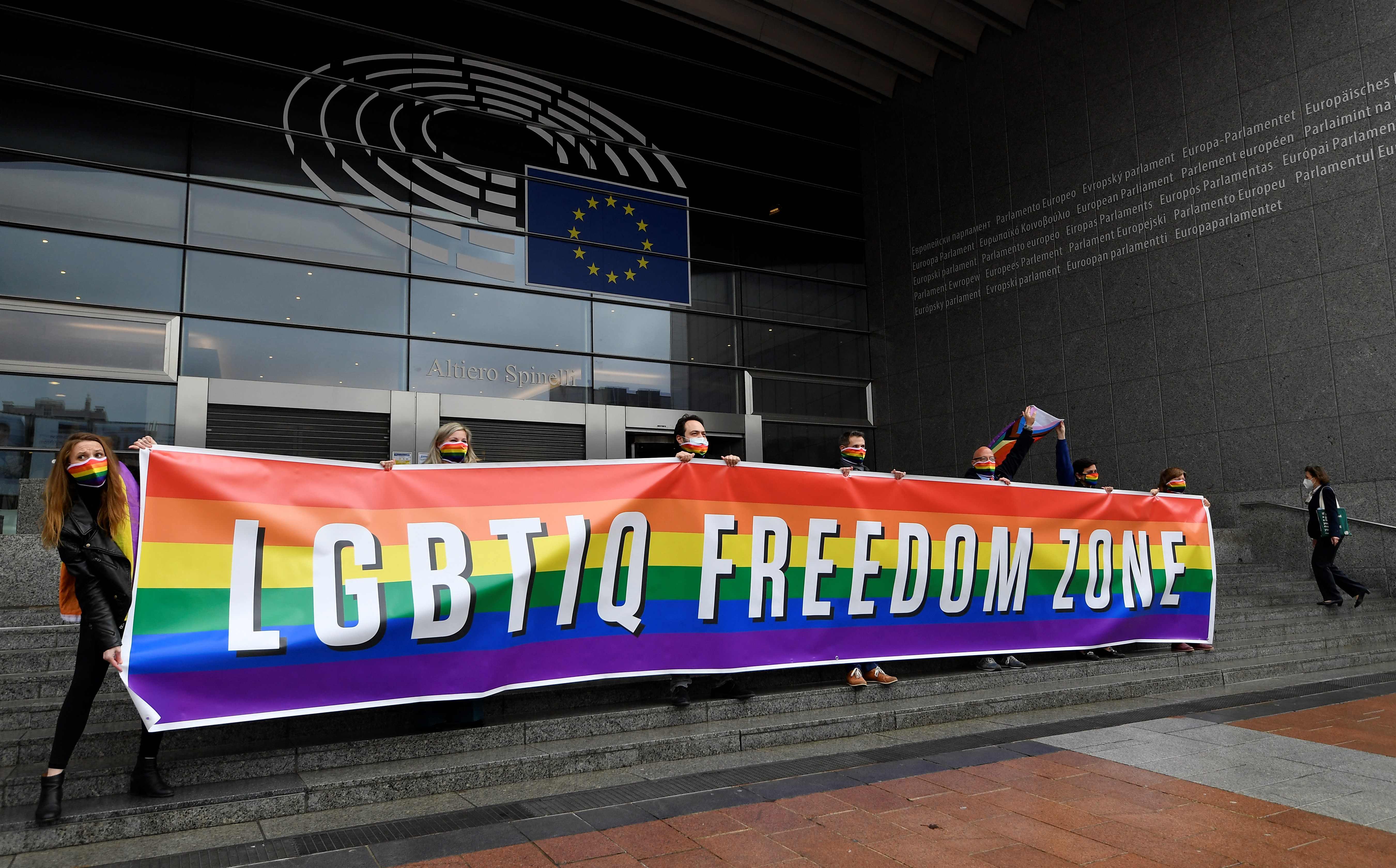Poland: What is an ‘LGBTIQ-free zone’ and how will the EU challenge them?
The EU has been declared an ‘LGBTIQ freedom zone’ in response to Poland’s discriminatory laws

Your support helps us to tell the story
From reproductive rights to climate change to Big Tech, The Independent is on the ground when the story is developing. Whether it's investigating the financials of Elon Musk's pro-Trump PAC or producing our latest documentary, 'The A Word', which shines a light on the American women fighting for reproductive rights, we know how important it is to parse out the facts from the messaging.
At such a critical moment in US history, we need reporters on the ground. Your donation allows us to keep sending journalists to speak to both sides of the story.
The Independent is trusted by Americans across the entire political spectrum. And unlike many other quality news outlets, we choose not to lock Americans out of our reporting and analysis with paywalls. We believe quality journalism should be available to everyone, paid for by those who can afford it.
Your support makes all the difference.The European Union has been declared an “LGBTIQ freedom zone” in response to an increase in discriminatory policies against the queer community in Poland and Hungary.
Members of the European Parliament (EP) voted to adopt the symbolic resolution after local authorities in Poland declared parts of the country “LGBTIQ-free zones”.
The resolution passed with 492 votes in favour to 141 against and 46 abstentions. But what are “LGBTIQ-free zones” and why has the EU been declared an “LGBTIQ freedom zone” now?
The EP resolution states that lesbian, gay, bisexual, transgender, intersex and other queer peoples should “enjoy the freedom to live and publicly show their sexual orientation and gender identity without fear of intolerance, discrimination or persecution”.
It goes on to call on “all levels of governance across the EU” to “protect and promote equality and the fundamental rights of all, including LGBTIQ persons”.
The resolution is effectively a statement of intention that MEPs hope will translate into action. Previously, the European Commission has rejected Polish towns which have declared themselves “free” of “LGBTIQ ideas” from EU funding for their town-twinning programme.
It is hoped that the Commission will use infringement procedures, regulation on protecting the EU’s budget and Article 7 of the Treaty on EU – a provision that means member states failing to respect minorities’ human rights can have their voting rights revoked – to address the issue.
Terry Reintke, a German MEP who was among those who put the resolution forward, described it as a “first step” towards “freedom” for LGBTIQ people.
The resolution comes two years on from the establishment of “LGBTIQ-free zones” in Poland, which now encompass more than 100 towns and cities – or about a third of the country. The zones are declared by local authorities and are aimed at banning Pride marches and other LGBTIQ events.
Although these zones are largely symbolic and their rules largely unenforceable, they reflect growing anti-LGBTIQ attitudes in the country, where same-sex relationships are illegal and same-sex couples cannot adopt children.
It is believed that they are helping to normalise increased hate speech from elected officials, including President Andrzej Duda, and pro-government media, as well as the arrests of LGBTIQ rights activists and attacks and discrimination.
The EP’s resolution comes as the Polish government consider widening their adoption ban to include single homosexual parents, thereby closing a loophole through which same-sex couples could raise a child.
The resolution also singles out Hungary as having a deteriorating relationship with LGBTIQ rights.
In December 2020, the country’s constitution was amended to define parenthood as “the mother is a woman, the father is a man”.
Adoption laws were changed so that only married couples can adopt children in most circumstances, thus effectively banning same-sex couples from doing so.
Hungary’s government also officially defined sex as being that which a person is born with.
Poland and Hungary have both indicated that they will take legal action against EU regulation that makes funding conditional on respecting the rule of law, although this does not appear to be related directly to their anti-LGBTIQ legislation.


Join our commenting forum
Join thought-provoking conversations, follow other Independent readers and see their replies
Comments